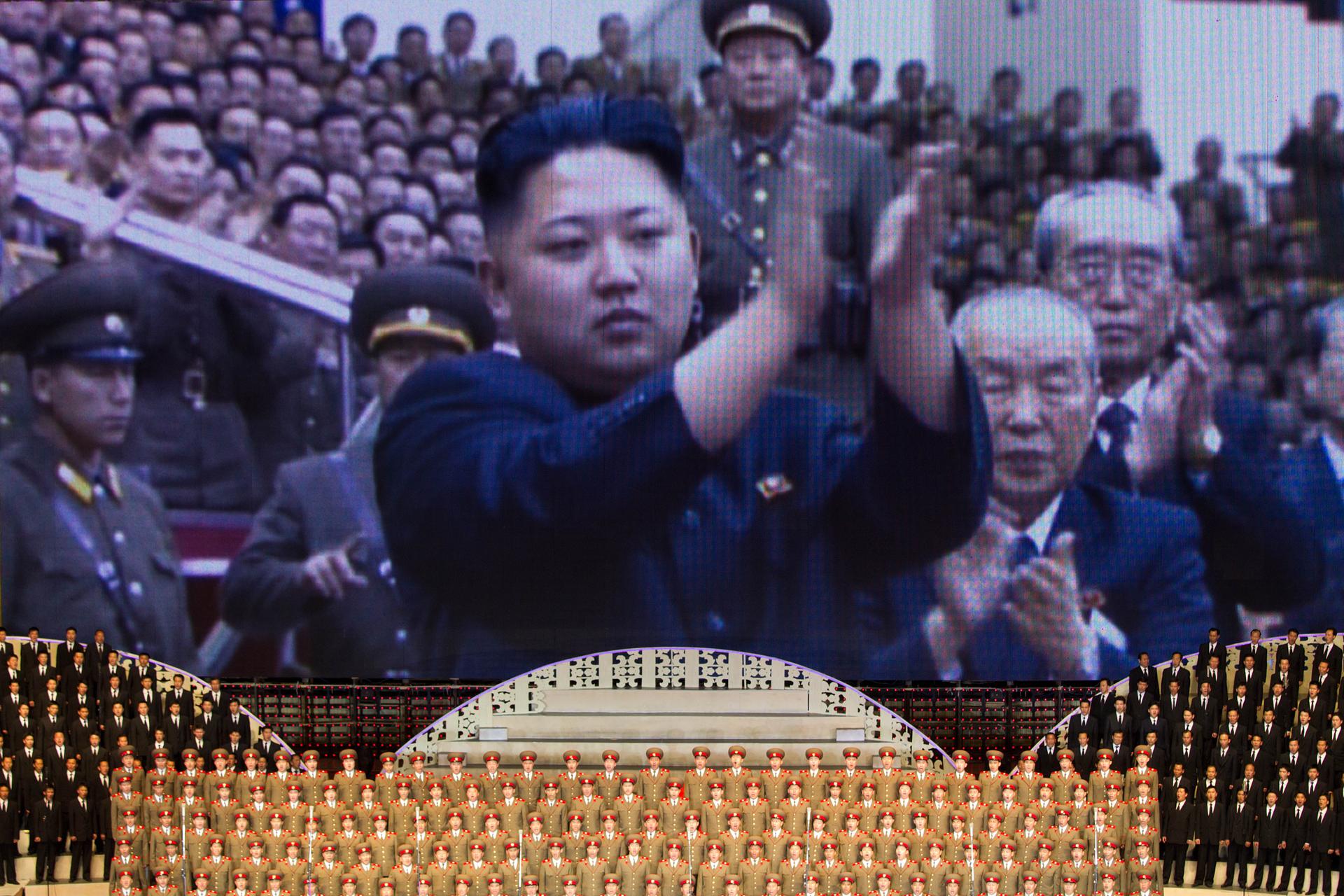North Korea: Kim Jong Il wanted ‘massive amount’ of nuclear bombs, Japan reports say
North Korean performers sit beneath a screen showing images of leader Kim Jong-Un at a theatre during celebrations to mark the 100th birth anniversary of the country’s founding leader Kim Il-Sung, in Pyongyang on April 16, 2012.
Kim Jong-Il, the late North Korean leader, reportedly ordered his scientists to produce "a massive amount" of bombs containing both uranium and plutonium.
Japanese news reports, citing an internal document obtained from Pyongyang, said that rather than ordering the enrichment of uranium solely for the purpose of power generation, Kim — who died in December — wanted his scientists to develop nuclear weapons.
South Korea's Yonhap news agency points out, that the North's official position is that Pyongyang was producing low enriched uranium to solve its acute electricity problem.
However, according to Yonhap the Tokyo Shimbun and the Mainichi Shimbun newspapers — citing a document believed to have been compiled in February this year for senior officials of the ruling Workers' Party — reported that a uranium enrichment plant the North disclosed to a visiting US scientist in 2010 was not designed for civilian industry.
"US and other hostile forces were complaining we are trying to produce uranium to make nuclear weapons," the document reportedly said, according to Agence France-Presse.
"To tell the truth … [the late leader said] we are not waiting for the uranium-enriching technology to develop so it can be put to use by civilian industries" such as power generation, the Mainichi Shimbun reportedly cited the document as saying.
"From a military point of view, it is a matter of course that we should use plutonium and highly-enriched uranium for atomic bombs," the document reportedly said, adding that Kim gave subordinates "a concrete task to produce a massive amount of nuclear weapons."
The newspapers did not give further details on when Kim allegedly ordered the nuclear weapon production.
Kim, who died in December, was succeeded by his youngest son Kim Jong Un.
According to the Australian Associated Press, Mainichi said the document was clear indication to party cadres that new leader had inherited his father's strategy of attempting to develop nuclear weapons.
More from GlobalPost: Rich People have a dirty little secret…
The story you just read is accessible and free to all because thousands of listeners and readers contribute to our nonprofit newsroom. We go deep to bring you the human-centered international reporting that you know you can trust. To do this work and to do it well, we rely on the support of our listeners. If you appreciated our coverage this year, if there was a story that made you pause or a song that moved you, would you consider making a gift to sustain our work through 2024 and beyond?
